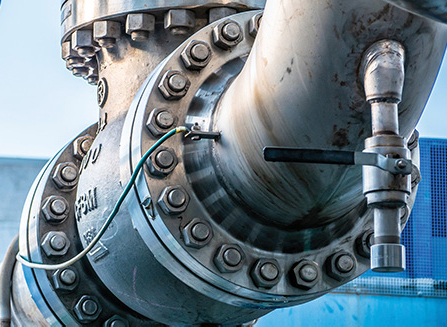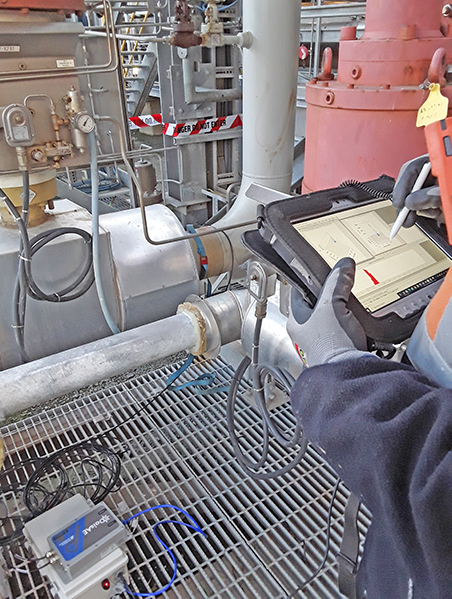
- KLINGER Australia
- Integrity Services
- Asset Integrity
- Passing Valve Survey
Related Services
Have any queries?
Get in touch
Call 1300 798 279 (from Australia)
+61 8 9251 1600 (outside Australia)
OR send us your enquiry
Passing Valve Surveys - Internal leak detection
Passing valves can cause product loss, wasted energy and cross-contamination of separated streams, which can lead to increased hazards and reduced product quality.
Valves in the ‘normal closed position’ that are failing (discharging or passing liquid or gas downstream) can create major process safety and plant performance issues. During plant or unit shut downs, valves in the ‘normal open position’ that fail when closed, can also create major risks. Process systems can become unstable or difficult to control, and flaring or emissions to atmosphere may increase as a consequence.
Identifying and rectifying failing valves can reduce product and energy losses, help lower emissions and improve safety. Using KLINGER Atmeco to find passing or failing valves generally involves little or no disruption to production and ensures that remedial response work is accurately targeted.
Passing valve survey - reduce risk and emissions
Suspect process valves and PSVs that fail in the closed position can be found with confidence using KLINGER Atmeco’s systematic and methodical screening and analysis. We use a three-phased approach to diagnose, verify, and quantify valves passing in the closed position.
Our superior approach to detect and locate passing valves involves deploying highly skilled technicians, cutting-edge ultrasonic scanning technologies and industry leading Acoustic Emissions (AE) monitoring techniques. Our technology can detect typical internal leak signatures from valves in the closed position with differential pressure across the valve.

Passing valve survey methodology
Our experienced technicians will capture and analyse field data including identifying passing valves and PSVs, verifying the acoustic emission source location of leaks and quantifying the leak rate to accurately measure losses. Our CIMS data management and reporting software is used to record and maintain data relating to passing valves.
Passing valve screening and subsequent leak validation in complex process systems require a minimum of 0.5 bar pressure differential across the valve.
Passing valve survey – deliverables
- Identify the closed valves that are passing liquid or gas downstream
- Process isolation point (shutdown valve) integrity reports
- Update CIMS database with leak source information
- Prioritise a list of maintenance response actions


